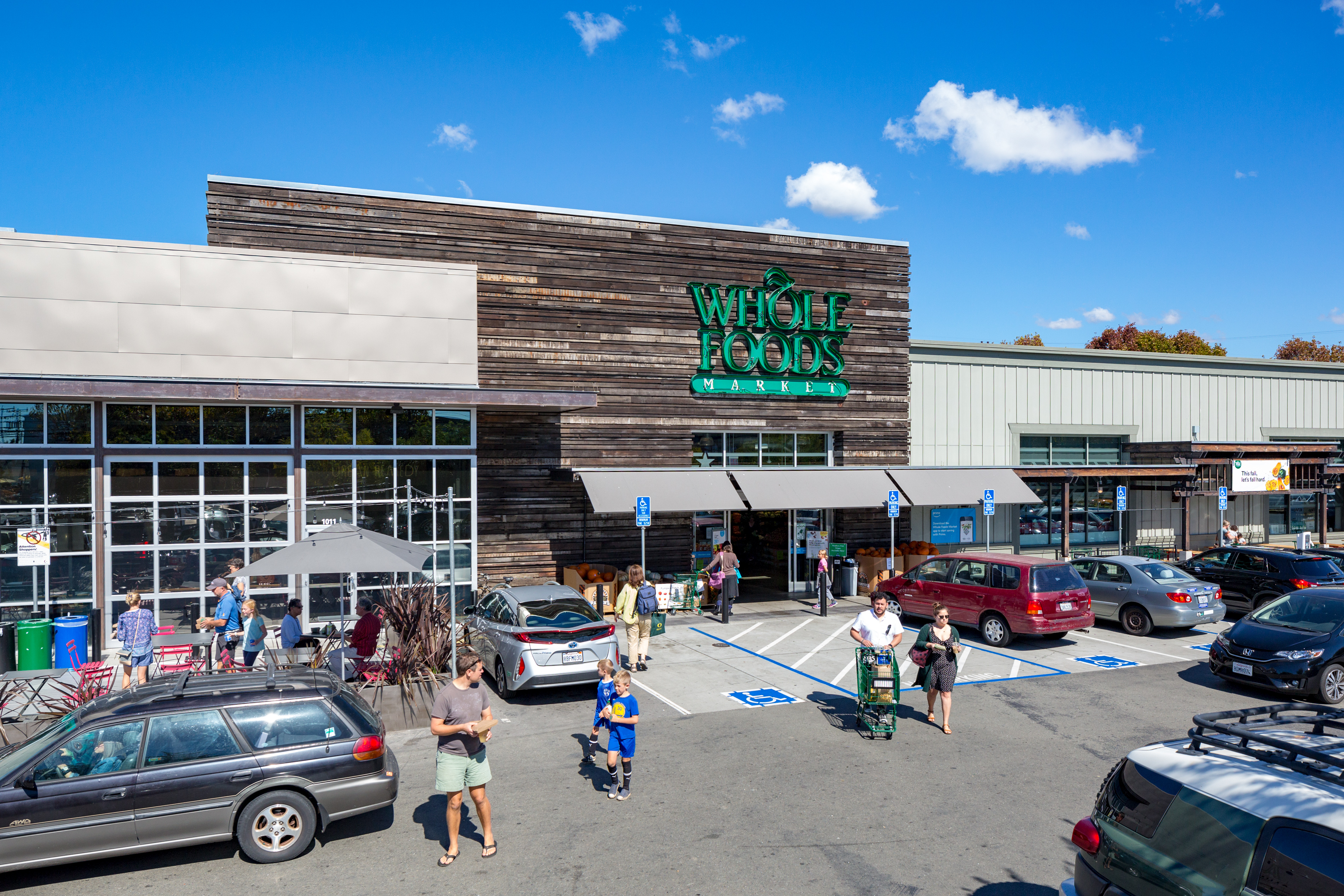Edens acquired eight open-air, grocery-anchored shopping centers encompassing 1 million square feet in California and Seattle from Donahue Schriber. It’s Edens’ first venture from the East Coast. Financial terms of the deal were not disclosed, but odds are the price was not cheap. Investors have been paying top dollar for convenience-focused retail properties, particularly those with upside potential, and REITs are willing to spend more for less upside on retail properties these days as the sector gains more perceived value.
Edens’ New Properties
- Los Angeles: Callens Corner, anchored by Albertsons
- Sacramento: Rocklin Commons, anchored by Target
- San Diego: Bonita Centre, anchored by Vons
- San Francisco: Alamo Plaza Shopping Center, anchored by Safeway
- San Francisco: Gilman District, anchored by Whole Foods
- San Francisco: Village Oaks, anchored by Lucky
- Seattle: Lakeland Town Center, anchored by a local supermarket
- Seattle: Westgate North

Gilman District. Pictured at top is Alamo Plaza Shopping Center. Photos courtesy of Edens
Edens will use the scale of the portfolio to grow its presence in the region further. “We have arrived on the West Coast in a meaningful way,” said chief investment officer Jami Passer. “Our West Coast expansion is a pivotal milestone for Edens and the next step toward building a pipeline of future opportunities.” Edens now owns and operates a combined 14.2 million square feet across 110 properties.
The private REIT isn’t the only firm adding such centers to its portfolio. Publicly traded REIT ShopOne is joining forces with global private asset manager Pantheon and an institutional investor to buy as much as $1 billion of grocery-anchored properties in high-growth U.S. markets.
Investors Target Properties That House Smaller Businesses
Real estate investors are buying properties occupied by small businesses at a quickening pace as prices for larger commercial properties rise, according to The Wall Street Journal. While small tenants are generally a bigger default risk, investment analysts said they often agree to share more financial information with their landlords, which increases their appeal to some investors. Funds are singling out buildings occupied by gas stations, doctors’ offices and corner grocery stores, WSJ reported.
By Brannon Boswell
Executive Editor, Commerce + Communities Today